.webp)
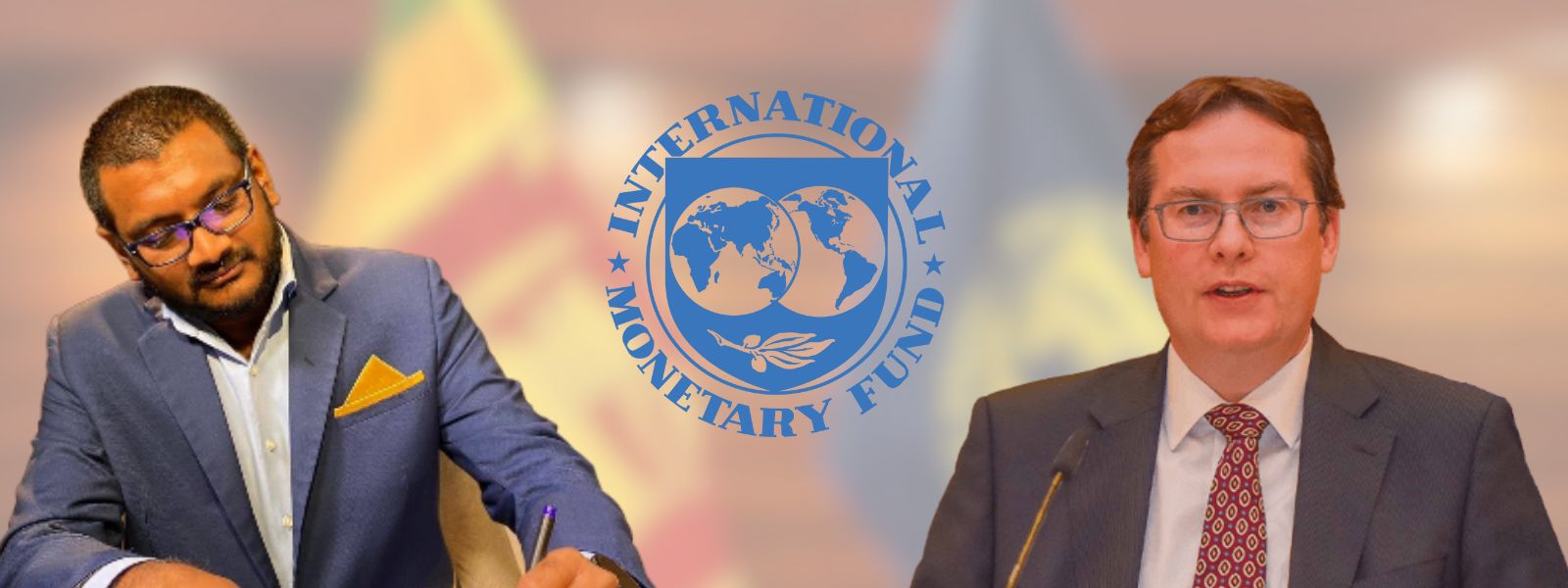
Exclusive: Sri Lanka’s Recovery Hinges on Reforms, Governance, and Debt Sustainability
Jakarta, Indonesia (News 1st); In an exclusive interview with News 1st's Zulfick Farzan, Peter Breuer, Senior Mission Chief for Sri Lanka at the International Monetary Fund (IMF), discussed the ongoing economic reforms and debt restructuring efforts in Sri Lanka.
Peter Breuer confirmed that discussions with Sri Lanka's President, President Anura Kumara Dissanayake, ahead of the staff-level agreement on the third review, have been productive, leading to a comprehensive package of reforms that
These reforms are designed to support Sri Lanka's ambitious economic recovery program without compromising its objectives.
"We reached staff-level agreement on a package of reforms that accommodates the authorities’ plans without jeopardizing the objectives of Sri Lanka’s ambitious economic reform program supported by the IMF’s Extended Fund Facility," he said.
Key areas of focus included improving governance, strengthening social safety nets, and implementing revenue measures to sustain mobilization efforts.
The IMF Senior Mission Chief told News 1st that the authorities have shown a strong commitment to the program's main objectives, which encompass raising revenues, improving social safety nets, mitigating fiscal risks from state-owned enterprises, maintaining price stability, rebuilding foreign reserves, safeguarding financial stability, reducing corruption, and enhancing growth.
Debt Restructuring Efforts
Addressing the President's recent comments to parliament on debt restructuring, Breuer emphasized that restoring debt sustainability is a core goal of the IMF-supported program.
This goal is pursued through a comprehensive reform agenda and seeking debt relief from creditors.
The Sri Lankan authorities have made significant progress in their debt restructuring efforts, reaching agreements with major official and commercial creditors. The recent agreement-in-principle with bondholders is seen as a positive step towards achieving the program's targets.
"IMF staff have assessed the recent agreement-in-principle between Sri Lanka and its bondholders as consistent with program targets. This represents a significant positive step in Sri Lanka's debt restructuring process. The next steps are to implement the various agreements into implementation, including through a bond exchange. The finalization and execution of debt restructuring agreements in principle, along with continued fiscal prudence and macroeconomic reforms is key to restoring debt sustainability," he elaborated.
Progress Under the EFF Program
Breuer praised Sri Lanka's progress under the EFF program, noting that the country has made commendable strides in implementing necessary reforms.
These efforts have led to economic recovery, with low inflation, improved revenue collection, and accumulating reserves.
He also pointed out that Sri Lanka's fiscal performance has been strong, supported by substantial fiscal reforms.
The new government's commitment to the program has reduced uncertainty and ensured policy continuity, which is crucial for sustaining the reform momentum and achieving stable, inclusive growth.
"Program performance was strong with all quantitative performance criteria for end-June apart from the indicative target on social spending met. Most structural benchmarks due before October 2024 were either met or implemented with delay.
The new government’s commitment to the program objectives has reduced uncertainty and ensures policy continuity. Sustaining the reform momentum is critical to safeguarding the hard-won gains of the program and putting the economy on a path toward lasting recovery and stable and inclusive growth. Since the crisis has affected Sri Lanka’s entire population, it will be important to ensure that the benefits from economic growth are shared appropriately," elaborated Breuer in his interview with News 1st's Zulfick Farzan.
Structural Reforms and Private Sector Investment
The IMF has emphasized the need for structural reforms in public sector management, state-owned enterprises, and tax collection.
Breuer highlighted several achievements in these areas, including the adoption of a new Public Financial Management law, cost recovery energy pricing, and improved tax compliance.
These reforms are expected to create an environment conducive to private sector investment, which is essential for driving growth.
Outlook for Sri Lanka
Looking ahead, IMF Senior Mission Chief Peter Breuer expressed optimism about Sri Lanka's economic future. He noted that the country has made significant progress in stabilizing its economy and is now poised to focus on structural reforms to enhance growth. Sustaining these reforms will be key to increasing private investment and achieving sustainable growth, which in turn will help protect Sri Lanka's debt sustainability.
Continued Commitment to Reforms
Breuer wrapped up the interview by reaffirming the IMF's support for Sri Lanka's reform efforts. He emphasized the importance of maintaining medium-term primary surpluses, raising revenues, and ensuring high-quality fiscal policy measures. These steps are crucial for safeguarding the gains made so far and continuing on the path to economic recovery.
Full Interview: (Note: The questions for this interview were posed prior to the announcement of the third review)
Interview with Peter Breuer, Senior Mission Chief for Sri Lanka By Zulfick Farzan, News First.
1. Sri Lanka's newly elected President Anura Kumara Dissanayake has announced that he expects to secure the staff-level agreement for the third review this week. Could you elaborate on the discussions you had with the President?
Thank you for making the time to have this interview. Let me start by reiterating that we reached a staff-level agreement on a package of reforms that accommodates the authorities’ plans without jeopardizing the objectives of Sri Lanka’s ambitious economic reform program supported by the IMF’s Extended Fund Facility. The program’s guardrails include sustaining medium-term primary surpluses consistent with debt sustainability, raising revenues, and ensuring fiscal policy measures are high quality. This is key to continue safeguarding and building on the hard-won gains that have helped put Sri Lanka on a path to economic recovery since entering one of its worst economic crises in 2022. Areas of discussion included improving governance, strengthening the social safety net to protect the poor and vulnerable, as well revenue measures to sustain the revenue mobilization efforts. The authorities expressed commitment towards the main objectives of the program which include a number of important pillars such as raising revenues; improving social safety nets; mitigating fiscal risks from state-owned enterprises including through cost-recovery energy pricing; maintaining price stability; rebuilding foreign reserves and safeguarding financial stability; and reducing corruption and enhancing growth.
2. In addition, the President also noted that the government will proceed with the debt restructuring agreements, adding that this framework alone is not the answer. How do you respond to that?
Restoration of debt sustainability is a core goal of the IMF-supported program. This goal is achieved through two main points: (i) implementing the full reform agenda, including revenue-based fiscal consolidation and other macroeconomic reforms; and (ii) asking creditors for debt relief through the debt restructuring.
3. "The Sri Lankan government has been implementing significant reforms as part of the IMF’s Extended Fund Facility program. Could you share your assessment of the progress made under the 3rd review of the EFF, and how far Sri Lanka has come in meeting the conditions set by the IMF?"
Sri Lanka has made commendable progress in implementing difficult but much-needed reforms. These efforts are bearing fruit as the economy recovers. Inflation remains low, revenue collection is improving, and reserves continue to be accumulated. Fiscal performance has been impressive underpinned by substantial fiscal reforms. Program performance was strong with all quantitative performance criteria for the end of June apart from the indicative target on social spending met. Most structural benchmarks due before October 2024 were either met or implemented with delay.
The new government’s commitment to the program objectives has reduced uncertainty and ensures policy continuity. Sustaining the reform momentum is critical to safeguarding the hard-won gains of the program and putting the economy on a path toward lasting recovery and stable and inclusive growth. Since the crisis has affected Sri Lanka’s entire population, it will be important to ensure that the benefits from economic growth are shared appropriately.
4. "Debt restructuring remains a critical part of Sri Lanka’s economic recovery process. Could you provide an update on the current status of debt restructuring talks? How likely is it that Sri Lanka will achieve the necessary debt sustainability targets outlined in the EFF?"
The Sri Lankan authorities have made good progress in their debt restructuring efforts by reaching agreements with their major official creditors and agreements in principle with their major commercial creditors. IMF staff have assessed the recent agreement-in-principle between Sri Lanka and its bondholders as consistent with program targets. This represents a significant positive step in Sri Lanka's debt restructuring process. The next steps are to implement the various agreements into implementation, including through a bond exchange. The finalization and execution of debt restructuring agreements in principle, along with continued fiscal prudence and macroeconomic reforms is key to restoring debt sustainability.
5. The IMF has emphasized the need for structural reforms in areas like public sector management, state-owned enterprises, and tax collection. What tangible results have been achieved in these areas so far, and how do you assess the government's commitment to implementing these reforms in a timely manner?"
There have been multiple structural reforms in these areas. The new Public Financial Management law has been adopted, which instills the principles of good governance and transparency into Sri Lanka’s public finances. Cost recovery energy pricing has reduced fiscal risks from SOEs. Legacy debts of SOEs are being repaid or otherwise resolved, thereby further reducing those risks. Significant efforts have been made to improve tax compliance, and the significant increase in tax revenue is partially due to these efforts. Overall, we see clear commitment to implement the structural reforms, and will continue to support the authorities in their efforts.
6. "The IMF program stresses the importance of boosting the private sector as a driver of growth. What measures are being considered to encourage private sector investment, and how do you assess the current business climate in Sri Lanka?"
Macroeconomic stability, restoring fiscal and debt sustainability, and financial sector stability –these are the critical factors for growth and investment. Private investment happens in an environment with good governance and predictable rules frameworks. Ongoing governance reforms should create an environment conducive to private-sector investment.
7. The IMF’s engagement in Sri Lanka is part of a long-term stabilization plan, but many are concerned about the country’s future ability to repay its debts and achieve sustainable growth. What is your outlook for Sri Lanka over the next 5 to 10 years, and what should Sri Lankans expect in terms of economic stability and growth?"
Sri Lanka has made commendable progress in implementing difficult but much-needed reforms. These efforts are bearing fruit with the economy recovering in line with the program’s first goal of macroeconomic stabilization program. After such stabilization, the next steps are to focus on structural reforms to enhance growth. Sticking to such reforms under the program will help increase private investment and achieve sustainable growth. Stronger growth would also help protect Sri Lanka’s debt sustainability.
8. "Looking ahead, how likely is it that Sri Lanka will continue on its current path of reforms? Are there any anticipated changes or adjustments to the EFF program in light of the evolving economic conditions?"
Every review gives the opportunity to reassess the macroeconomy considering the latest data and developments. In this context, we discussed the authorities’ plans for reforms within the guardrails of the program. Such guardrails include sustaining medium-term primary surpluses consistent with debt sustainability, raising revenues, and ensuring fiscal policy measures are high quality. This is key to continue safeguarding and building on the hard-won gains that have helped put Sri Lanka on a path to economic recovery since entering one of its worst economic crises in 2022.
Other Articles
Featured News





.png )


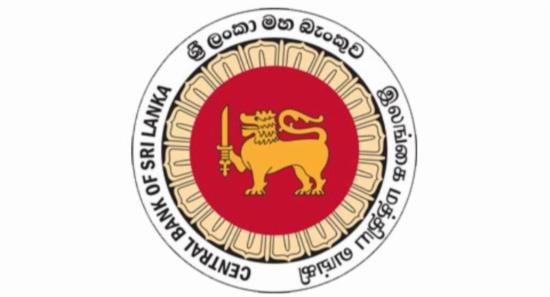
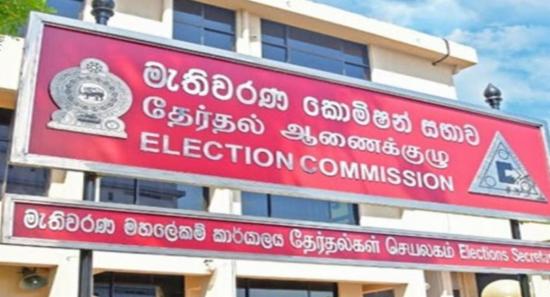
-734424_850x460-774087_550x300.jpg)



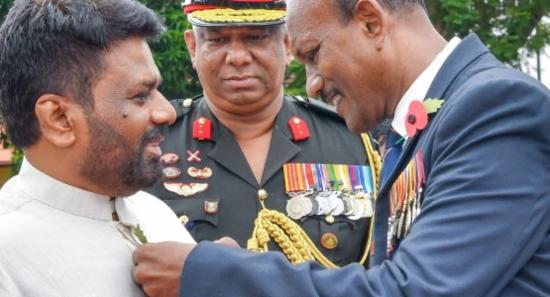

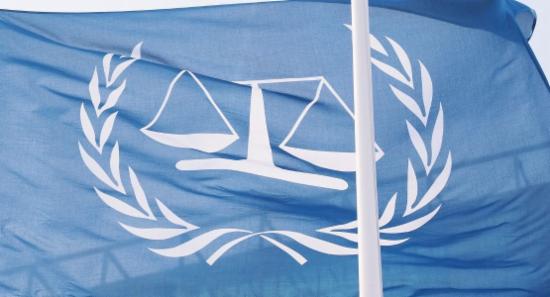
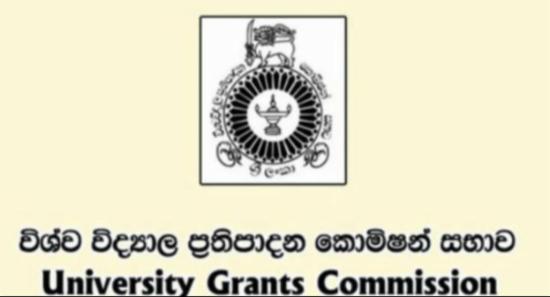
















.gif)